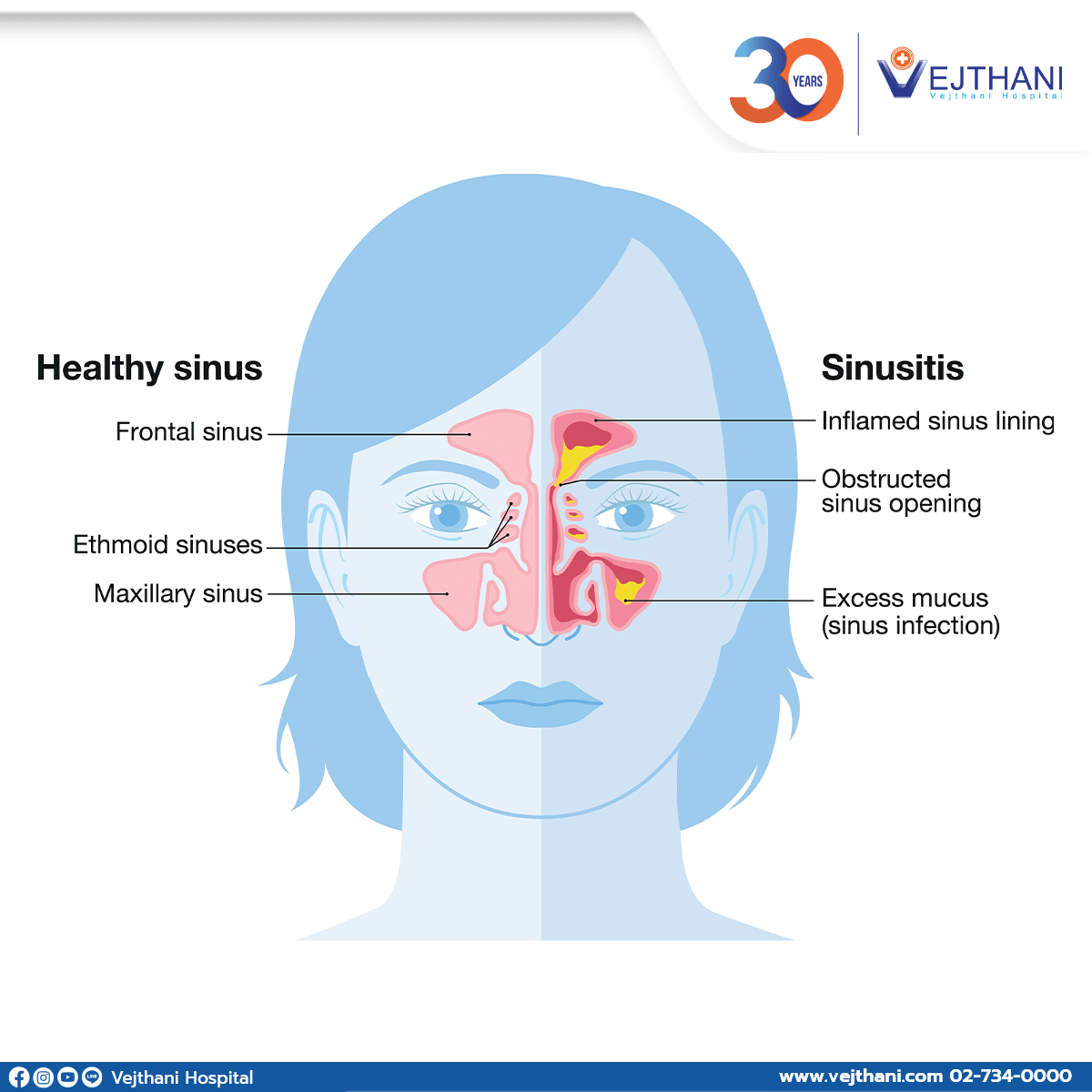
Chronic Sinusitis

Overview
Chronic sinusitis is a medical condition where the sinuses, which are small cavities inside the head, become swollen and inflamed. This can lead to the accumulation of mucus and cause difficulty breathing through the nose, as well as pain, headaches, and facial swelling. The condition can be caused by infections, nasal polyps, or swelling of the sinuses’ lining, and it can affect both adults and children.
There are different types of sinusitis, including acute, subacute, chronic, and recurrent. While acute sinusitis typically lasts only a few days and can go away with little or no treatment, chronic sinusitis can last longer than 12 weeks and require different types of treatment.
Treatment for chronic sinusitis may include medications, such as antibiotics, steroids, or nasal sprays, to reduce inflammation and fight infections. In severe cases that do not respond to other methods, surgery may be necessary.
Symptoms
Chronic sinusitis commonly manifests as the following:
- Difficulty breathing through the nose due to a blocked or congested nose.
- Swelling, pain, or discomfort around the eyes, cheekbones, nose, or forehead.
- Diminished ability to smell or taste.
- Swelling or inflammation of the nose.
- Thick and brownish nasal discharge or a runny nose.
- Postnasal drainage or drainage down the back of the throat.
Other warning signs and symptoms could be:
- Upper jaw pain
- Toothache
- Exhaustion
- Cough, throat irritation or sore throat
- Ear pain
- Headache
- Foul breath
Similar signs and symptoms are present in both acute and chronic sinusitis. However, acute sinusitis is a brief sinus infection that is often associated with a cold. While you may experience several episodes of acute sinusitis before developing chronic sinusitis, the signs and symptoms of chronic sinusitis last for at least 12 weeks. Although fever can occur with acute sinusitis, it is not common.
If you’ve had sinusitis multiple times and it doesn’t go away with treatment, or if you have symptoms that last more than 10 days despite treatment, it’s important to schedule an appointment with your doctor. Also, if you see your doctor but your symptoms don’t improve, it’s important to follow up with them.
However, if you experience fever, swelling or redness around your eyes, severe headache, forehead swelling, confusion, double vision or other vision changes, or a stiff neck, it’s crucial to seek medical attention immediately. These symptoms may indicate a serious infection that requires prompt treatment.
Causes
Chronic sinusitis can be brought on by:
- Deviated nasal septum. The wall separating the nostrils, known as the septum, can become crooked and limit or block sinus passageways, exacerbating sinusitis symptoms.
- Nasal polyps. The sinuses or nasal passageways may get blocked by these tissue growths.
- Other diseases. Nasal obstruction can be caused by the side effects of illnesses including HIV, cystic fibrosis, and other immune system-related ailments.
- Respiratory tract infections. Colds are the most frequent respiratory tract infections that can thicken and swell your nasal membranes and prevent mucus from draining. Bacteria or viruses may be at blame for these infections.
- Allergies like hay fever or acute sinusitis. Your sinuses may get blocked by the inflammation that comes with allergies.
Risk factors
The following conditions enhance your risk of developing chronic sinusitis:
- Immune system conditions such as cystic fibrosis or HIV/AIDS
- Other allergies like hay fever
- Frequently inhaling toxins like cigarette smoke
- Nasal septum deviation
- Nasal polyps Asthma
- Tumors
- Allergic reaction to aspirin Infection: fungal or on the teeth
Contact Information
service@vejthani.com






















